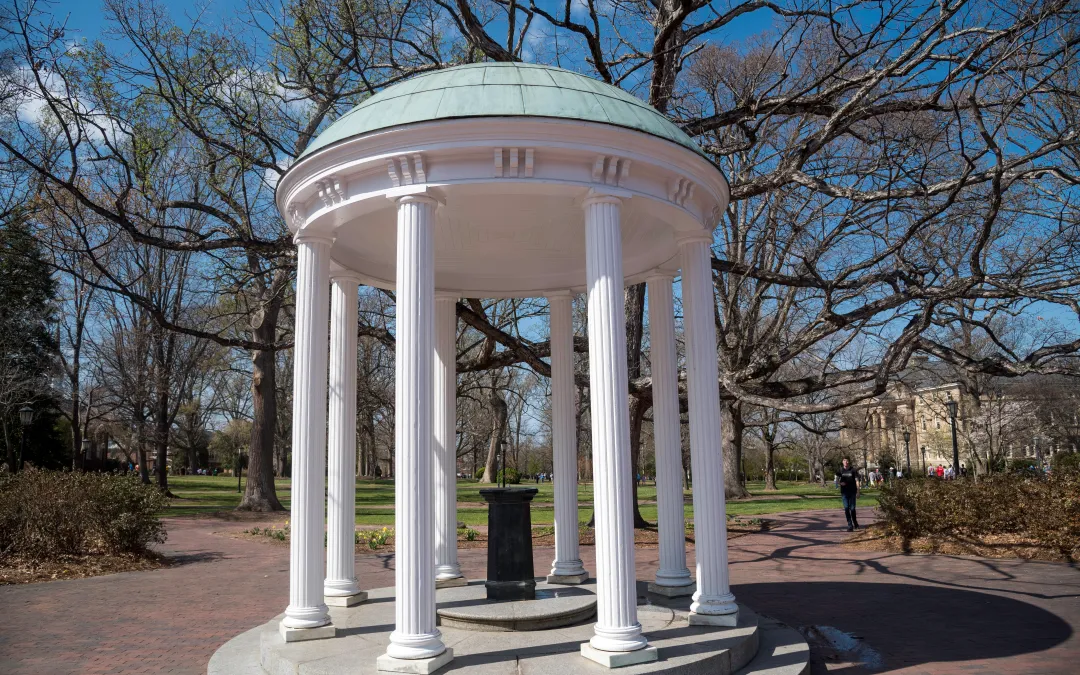NextDoorers, please stop trying to make rent too expensive before you at least get to know your student neighbors.
Yes, unknown Nextdoor users, drunk 19-year-olds are obnoxious. However, Chapel Hill is one of the most highly educated towns in the country, with 75% of residents holding at least a bachelor’s degree. So, there is a good chance whoever wrote that probably went through college themselves. Maybe they have gone to their fair share of “keggers”? Maybe they have annoyed their neighbors. Perhaps, they’ve relieved themselves in public.
I am not here to make baseless assumptions but to provide my perspective as an undergraduate student. With almost 20,000 undergraduate students at Carolina, some of them are going to behave poorly. Trust me, I know. But to claim we should not develop more housing in Chapel Hill because of some obnoxious students is absurd.
Since transferring to UNC this fall, I have heard from people with different backgrounds the same complaint that housing is too expensive. Students, professors, and everyone else in our community who is not exorbitantly wealthy feels the financial pressures resulting from Chapel Hill/Carrboro’s horrendous housing market-one of the priciest in the state.
Interestingly, the post referenced in Jillian Kern’s article refers to how horrendous their freshman neighbors are. But, first-years must stay on campus unless they pay for a dorm and off-campus housing—a privilege that only the wealthiest undergrads can afford. This scenario is not fictitious, I won’t air anyone’s laundry, but there are wealthy first-years whose parents cover both. Yet, practically all of us can barely afford the price of one rent payment, let alone two.
Believe it or not, as Kern wrote, we’re not a monolith. My friends and classmates struggle to pay for housing, food, and bills. Furthermore, 40% of UNC students responded to a survey claiming they did not eat enough because money was tight.
The entire situation boils down to simple economics. The demand for housing is high, but the supply is too low, forcing prices up. Now what? to lower rents, increase the supply—build more housing! I know this is not the principal conversation here, but our housing market affects all of us, students and city residents alike. Besides, building more housing will not raise the demand. It will alleviate the cost of housing across Chapel Hill and Carrboro (win-win).
I decided to take a stroll through the enemy territory (NextDoor). Seemingly, their consensus is that we are a pariah on a one-path mission to corrupt the moral fabric of Chapel Hill, urinate in the streets, and drive the housing market up so high that no one can live here. Have they ever tried to get to know us?
I transferred to UNC this fall. As a result, my choices for housing were slim, so I took what I could find, an apartment in a quiet majority non-student neighborhood. I was weary about living around people at different stages in life, but after getting to know my neighbors, I found my arrangement pleasant.
For the most part, my neighbors are older. That does not mean we have nothing in common or that problems arise from the simple fact of my existence. In one of my first weeks living at my apartment, I had a glass of wine with a few of my neighbors and swapped phone numbers. Things have been smooth my entire time living here. We enjoy having a cordial relationship with each other.
When problems arise, we can reach out to each other. For instance, when our building water was contaminated last week, we kept each other in the loop. I ran to Walmart to get myself and one of my older neighbors water. In return, she baked me some cookies.
If my neighbors and I can build a mutually beneficial relationship, then so can the rest of Chapel Hill and Carrboro.
As a sociology student, I’ll say that knowing your neighbors can prevent most problems with them. The social bonds we form guide many aspects of our lives, including our behaviors. For instance, if a stereotypical frat brother spends most of their time in their circle of other brothers, they’ll conform to their way of life—playing music too loud, drinking heavily, and being a nuisance. Conversely, if they know their neighbors and how their behavior impacts them, believe it or not, they will be more considerate (embarrassment is a strong emotion).
At this stage in our lives, we are figuring out who we are, and our connections to others are critical to that development.
Instead of pouring energy into building coalitions, taking legal action, and harassing public officials to block the creation of more housing, why don’t we get to know each other first? If Davis’ Neighbors’ Night Out event is successful, we should try it here.

